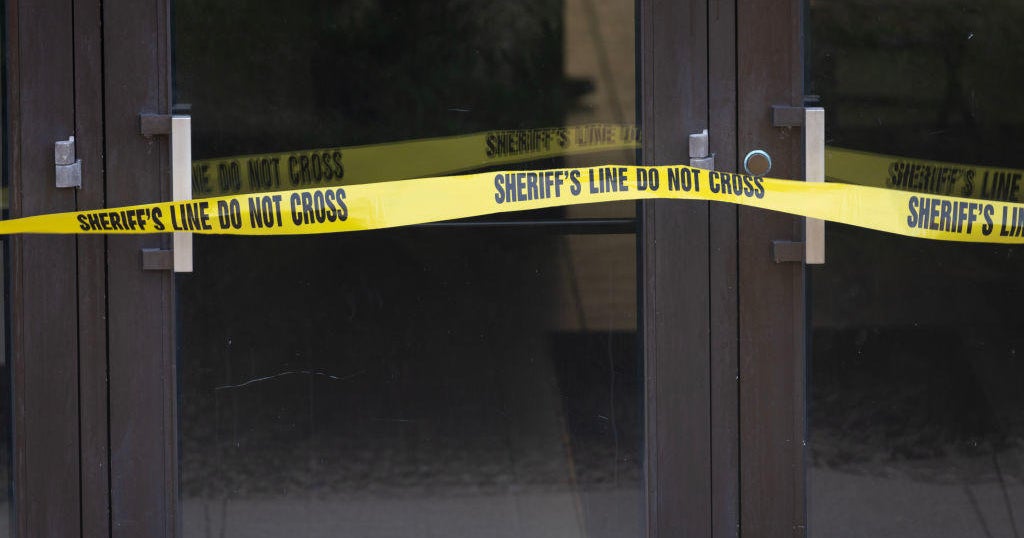Hazardous air quality threatens California farmworkers after devastating wildfires
After wildfires blazed through California's northern and central regions, parts of the state have been blanketed by ash-filled air and smoke. That's putting the nation's farmworkers, who are already battling triple-digit temperatures and the coronavirus, at risk, multiple farmworkers told CBS News.
Liliana Ramos, a 28-year-old mother, said she wakes up every morning at 3:30 a.m. to prepare her lunch, take her 3-year-old son to daycare and travel about an hour to work in the Salinas Valley, more commonly known as the "salad bowl of the world."
About two weeks ago, when the smoke from the River Fire and the Carmel Fire was at its worst, "It looked like it was snowing here. Ashes were falling," Ramos told CBS News in Spanish.
"Working in those conditions is very difficult because your eyes burn and [when] you breathe, your throat hurts," she said, adding that the smoke "was very strong, it was practically cloudy to the ground and everywhere it just smelled like smoke."
The River Fire, which started on August 16, scorched 48,088 acres, and the Carmel Fire, which started two days later, scorched 6,905 acres, according to Cal Fire. They are both now mostly contained — but they caused plumes of thick smoke and contributed to hazardous air quality in the Salinas Valley region, where thousands of farmworkers are employed.
Just last week, Ramos said, she became ill with what her doctor said was the flu, and was forced to stay home without pay. Ramos claims that her throat began hurting after ingesting all of the smoke, and said she only had a cloth bandana wrapped around her nose and mouth.
According to Cal/OSHA workplace regulations, employers are required to protect outdoor workers with N95 masks or respirators when the Air Quality Index is 151 or greater.
Norm Groot, the executive director of the Monterey County Farm Bureau, said employers quickly tried to secure masks for their employees when the fires broke out. The state allocated 175,000 N-95 masks to be distributed to all agriculture employees and their farmworkers, and should have reached everyone, Groot said.
When asked if it was possible that some people could have been missed, he said, "it should have covered everyone. And I'm sure there was somebody here or there that probably was missed. But for the most part, we did as much as we possibly could, given the fact that you can't find N-95 masks on the marketplace right now."
The president of the United Farm Workers of America said the group received calls from workers who said they weren't getting N95 masks and couldn't breathe because of the smoke.
"We're getting calls from workers in the central coast saying, 'We're working. I can't even breathe. But we need to keep working. Otherwise, they will fire us,'" Teresa Romero said.
Romero said after the organization received 75,000 respiratory face masks from the Port of Los Angeles, it drove them throughout the state to workers in need.
"If you put a worker in any other industry to work under those conditions, the workers would not put up with it," she said. "But, you know, farm workers need their jobs. They live paycheck to paycheck. And they accept a lot of these abuses because they want to keep their work."
Mariza Martinez, who also works in the Salinas Valley picking strawberries, said the fires and high temperatures soaring into triple digits have made her "very stressed."
"We were quite afraid and stressed because of the virus, but now it is not just the virus — it's also the smoke and the heat," she said.
Martinez said the conditions have been so dire that she now has "a lot of blisters all over my feet and neck."
The 33-year-old single mother of five said coronavirus concerns are still plaguing farmworkers, and that the combination of issues creates added pressure.
"We feel trapped especially because we're parents who have to work and we are afraid of the virus and someone possibly being sick and us getting infected," she said. "On top of that, now there's the smoke, so I have a headache from trying to think about all of this and how we have to protect ourselves."
In the San Joaquin Valley, another huge agricultural region located in central California, the air quality is still unhealthy from all of the active fires, said Ryan Jacobsen, CEO of the Fresno County Farm Bureau.
"We weren't directly next to the fires — one was next to us but it was much smaller — But because of the geographic way of the valley, we're essentially in a bowl. The smoke kind of just filters in and sits in here," Jacobsen said.
Jacobsen added that due to the heat in the valley, where temperatures have recently reached up to 110 degrees, some accommodations have been made to allow farmworkers to begin earlier in the day.
Lourdes Cardenas, who said she's been a farmworker for 16 years, picks grapes in Fresno, California. She said that her company has recently shifted her hours, allowing her to leave anywhere between four and six hours early, and has given her and other farmworkers breaks every 10-15 minutes.
California required water and shade for laborers in extreme heat in 2015, following a large number of farmworker deaths. The UFW is still pushing for stricter heat protections.
And while the most recent spate of major wildfires has subsided, there's no guarantee air quality will improve soon.
"This is California. So there is the expectation that, you know, bad fires could just be around the corner," Jacobsen said.







